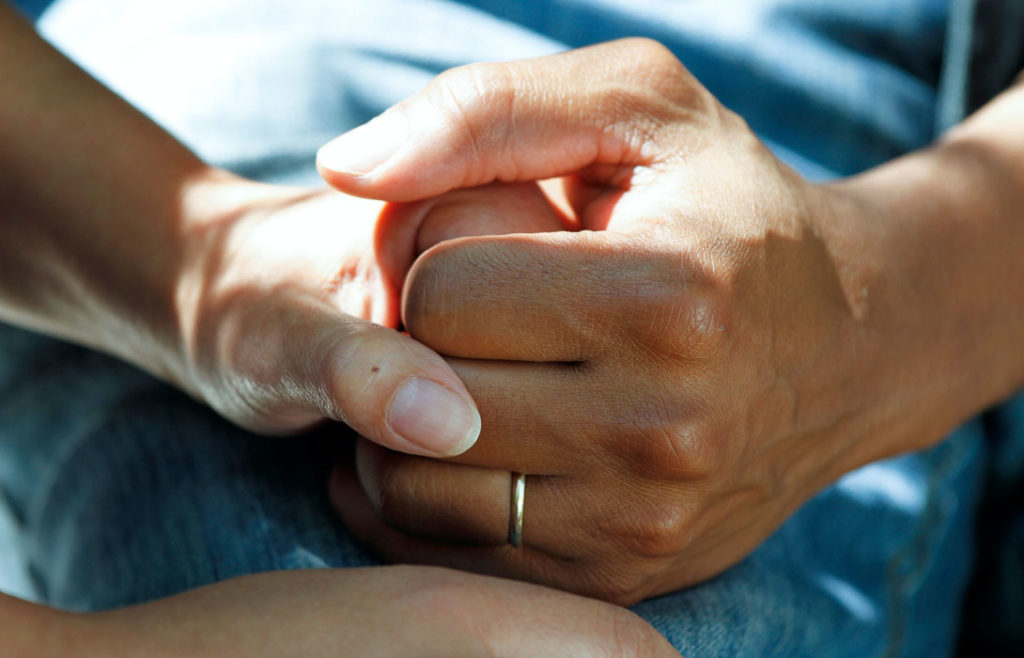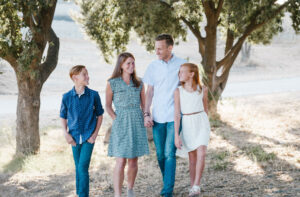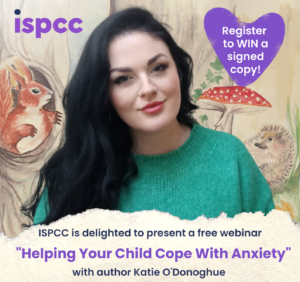
Cancer touches the lives of thousands of families every day but it’s still something that we find hard to talk about – especially when it comes to children.
Though you may find it hard to do, it is important to tell your child if you or a relative has cancer.
It’s best to talk openly to your children and involve them as much as possible in family events.
As long as the information is age-appropriate, c who are included in what’s going on are less likely to have problems adjusting to the illness. Even, so, it will still be hard learning to adjust.
The impact of a cancer diagnosis
When you learn that you or someone close to you has cancer, it can be a shock. You are likely to have a wide range of emotions, anxieties and concerns. If you have children, it is understandable that you may worry about telling them that you have cancer and the how it will impact their lives.
Why should I tell my child about cancer?
Your first reaction might be to keep the news from your child or delay telling them until you know more about your treatment.
The natural parental instinct is to protect children – especially during times of sadness or uncertainty.
However, what’s really important is how we as parents support our children to deal with such experiences. Talking to them about your diagnosis is a big step and it’s natural for them to feel sad or upset.
We cannot stop children feeling their emotions but if we share our feelings and inform them on what’s happening, it promotes an environment of openness and sharing that will encourage them to talk more when they’re upset.
The effects of not talking
If you choose not to tell them, you may feel that you are protecting them but you also run the risk of them finding out from someone else.
Children may feel isolated or angry if they are not told or refuse to accept your reasons for not telling them.
It can be a relief for you to have it out in the open so you don’t have to make up excuses to cover hospital visits, why you look different or why you’re extra tired suddenly. As a family, you will all be learning to change together.
Benefits of talking to children
By encouraging your child to talk about cancer in an open manner, they may be better able to cope in general. It can be a good opportunity for them to learn about emotions and how to deal with difficult feelings.
By sharing information, the bond between parents and children can be made even stronger and can bring family members closer together.
When should I tell my child?
Choosing when to tell your child about a cancer diagnosis is not easy and the truth is, there’s no right or wrong time. You may need to come to terms with the news yourself before you’re able to explain it to your children and it can help to tell them a little at a time.
For example: ‘Daddy is in hospital to have some tests. We’re not sure yet what’s wrong, but when we do know, we will tell you.’
A good time to talk about cancer is before an obvious change occurs. For example, if your hair is going to fall out due to treatment, you may want to explain this before-hand so it doesn’t come as a shock.
Children can deal with changes if told about them in advance and have a good support system.
Single or separated parents
If you are a single parent with cancer, the situation can be extra hard as you may have less support. In this case, you may need to rely more on family, friends and relatives.
Make sure your child knows and trusts the person you choose to look after them. If you are a separated parent, your child may be used to changes in domestic routines already but even so, it is best to keep things as stable as possible for them.
Make sure familiar things are kept at each household such as special toys, photos, drawings, clothes and bedding.
The ill parent should be visited regularly and both households should be kept up-to-date on any changes in your medical treatments.
Be prepared for questions
If and/or when you decide to tell your child about your cancer diagnosis, be prepared for any questions they may have.
If you have several children, tell the eldest first and possibly the little ones together. Children can differ a lot in what they understand at a particular age. Young children need simple, clear explanations – try to link what you say to things they’ve already noticed. Rehearse what you’re going to say and be prepared for their response.
Children can be very direct so take your time to consider how best to approach the subject and allow yourself plenty of time to spend with your children afterwards.
This gives them time to ask more questions if they wish or just be reassured by the normality of having playtime with you.
What should I tell my children?
Explain what the illness is by using the word cancer and how your health will be affected.
Give some details about the treatment in simple, clear language. Tell them you’re not sure how things will work out. Let your children know about any changes to their daily routine.
Listen to children
Encourage your child to talk to you whenever they want and give them every chance to express what they are feeling and thinking. Also, listen carefully to what they have to say. They will ask what they really want to know.
Descriptions of cancer
‘There is something in my body called cancer. It is making me sick. The doctors are giving me medicine to try to make it go away.’
‘Our bodies are made up of lots of cells. When someone has cancer, some cells change and they grow faster than normal cells. Treatment is needed to fight them.’
‘Cancer is an illness of the body that can be in different places for different people.’
Who can I talk to?
There are many health professionals ready to help you and your family throughout treatment and afterwards.
Ask for advice on how to talk to your children, especially if you have any queries or specific concerns.
You can speak to medical social workers, cancer nurse specialists, a hospital consultant, psycho-oncology services, advanced nurse practitioners, a family doctor, cancer counsellors, community health services or support groups.
Some of these are based in hospitals while others work in the community.
Top Tips:
- Don't lie to your child
- Don’t make promises that you may be unable to keep
- Don’t take away all hope – leave your child feeling that there will be better days ahead.
- Avoid giving too many details about cancer, finances or test results
- Don’t force your children to talk if they don’t want to
- Treat older children and teenagers separately to younger children in the family when telling them about cancer.
- Encourage your child to talk to you whenever they want and listen carefully to what they have to say
Click here for more information on how to talk to children of different ages about cancer.
Click here for more information on counselling for children or here to learn more about support centres in your local area.
Written in association with the Irish Cancer Society


